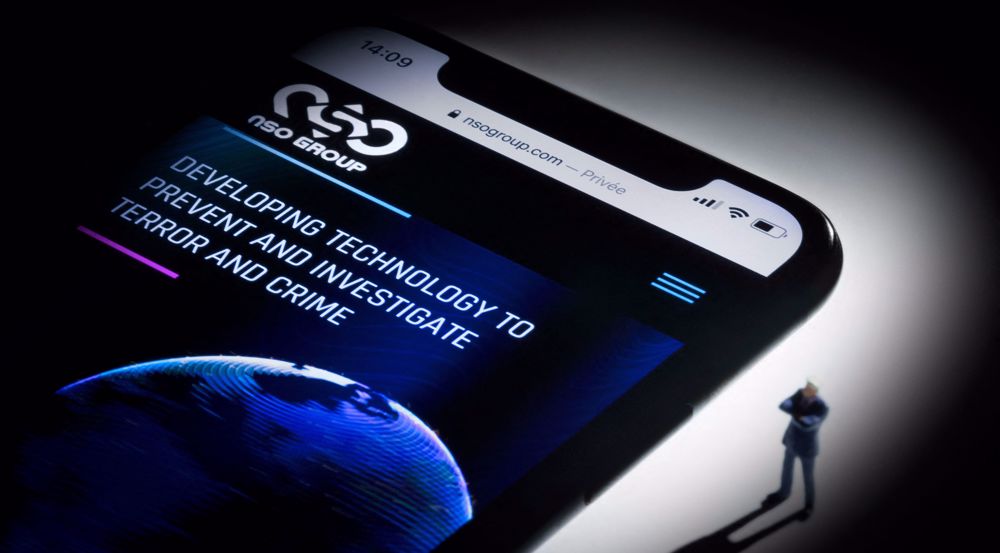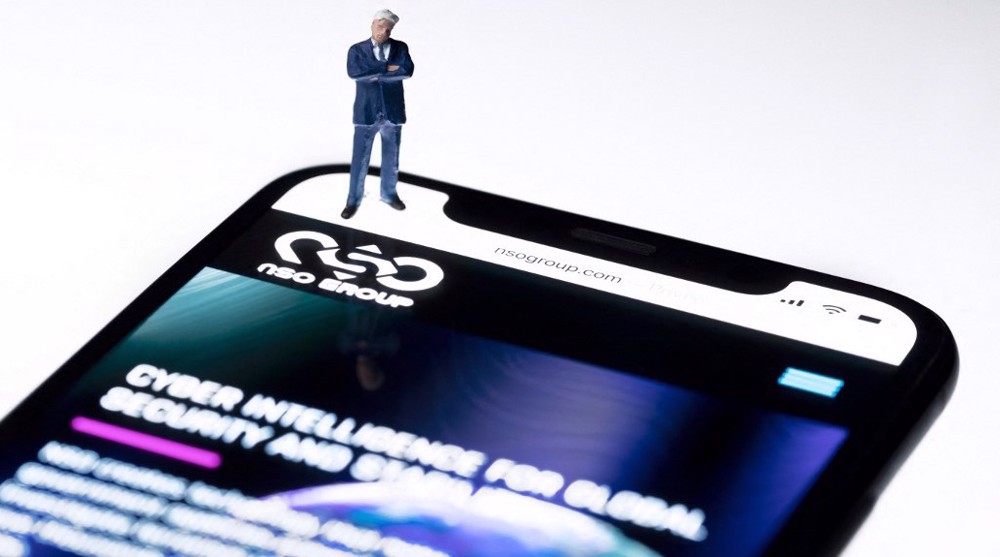Tel Aviv insisted that Riyadh be allowed to buy the Pegasus spyware
The Israeli regime is in hot water over a major scandal triggered by revelations that an Israeli made spyware, has been sold to some governments to target journalists, dissidents, and political leaders.
Data leaked to an international alliance of news outlets shows the Pegasus spyware was sold to a group of countries, including the repressive regimes of Saudi Arabia, Bahrain, and the United Arab Emirates, which have notorious human rights records.
It has been disclosed that Israel's Ministry of Military Affairs played an important role in choosing the customers that can buy the cutting edge cyber spying tool.
Some sources say Israeli authorities pushed for Saudi Arabia to be added to the list of customers that would get the spyware.
International pressure is mounting on Israel for enabling gross abuses by approving export licenses for the powerful spying tool to these states.
Why was Tel Aviv so eager to make sure regimes like Saudi Arabia could have the sophisticated tool?
It helps them to control their countries. It helps to get them to be on the same side as Israel, because that's typically repressive regimes find Israel to be a,... you can call it a good alliance, if you will.
So, this is what's happening and it's happening now with the repressive Arab regimes in a way that it did not happen in the past.
Paul Larudee, Free Palestine Movement
US media recently reported that Israel encouraged the technology company that developed Pegasus to continue to cooperate with the Saudis, even after it was revealed that the regime ordered and planned the gruesome assassination of outspoken journalist Jamal Khashoggi in 2018.
The Israeli regime seems to be trying to control damage from this scandal. It has set up a task force to manage the fallout from the revelations, amid an international outcry.
Investigations show that the Israeli spyware has been used against prominent activists, journalists, politicians, dissidents, and those close to them.
A case in point is Saudi journalist Jamal Khashoggi who was killed and dismembered in Saudi Arabia's consulate in Istanbul.
The mobile phones of a number of people close to him, including his wife, were allegedly hacked by a Pegasus operator.
A close friend of Jamal Khashoggi, the ex Director General of the Qatar based Al Jazeera network, is believed to have been targeted.
Meanwhile, outspoken Saudi women's rights activist, Loujain al-Hathloul, was apparently another victim. The Guardian says she was selected for possible hacking by Pegasus just weeks before she was arrested in the UAE in 2018, and then forcibly returned to the KSA.
Meanwhile, an investigation suggests that Princess Latifa, who was running from her father the ruler of Dubai, was captured in 2018 utilizing the Israeli phone hacking spyware Pegasus.
The Washington Post reports that phone numbers of friends and associates of the princess were on the long list of phone numbers of people believed to have been targeted by the spyware.
Israeli authorities seem to be having a tough time trying to contain the scandal as major Western media outlets are involved in revealing the details. Israel with its high end surveillance capabilities has always been a major player in the world of espionage.
Many observers believe the revelations suggest that the regime will not hesitate to share experience and technology in the field with governments that it wants to be friendly with.
Hamas thanks Iran, Resistance Front following achievement of ceasefire in Gaza
'Capitulation': Israeli officials and media concede Gaza defeat as truce unfolds
'Gaza has won': Social media users react to ceasefire with mix of relief, joy
Iran seeks South Korea’s assistance for AI, fiber-optic projects
VIDEO | Iran's 'Eqtedar' (Power) maneuver
Israel hits HTS military target in Syria for 1st time since fall of Assad
VIDEO | Press TV's news headlines
Israel has slaughtered 13,000 students in Gaza, West Bank
















 This makes it easy to access the Press TV website
This makes it easy to access the Press TV website